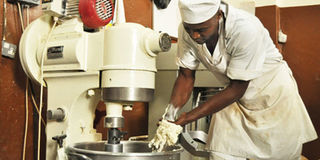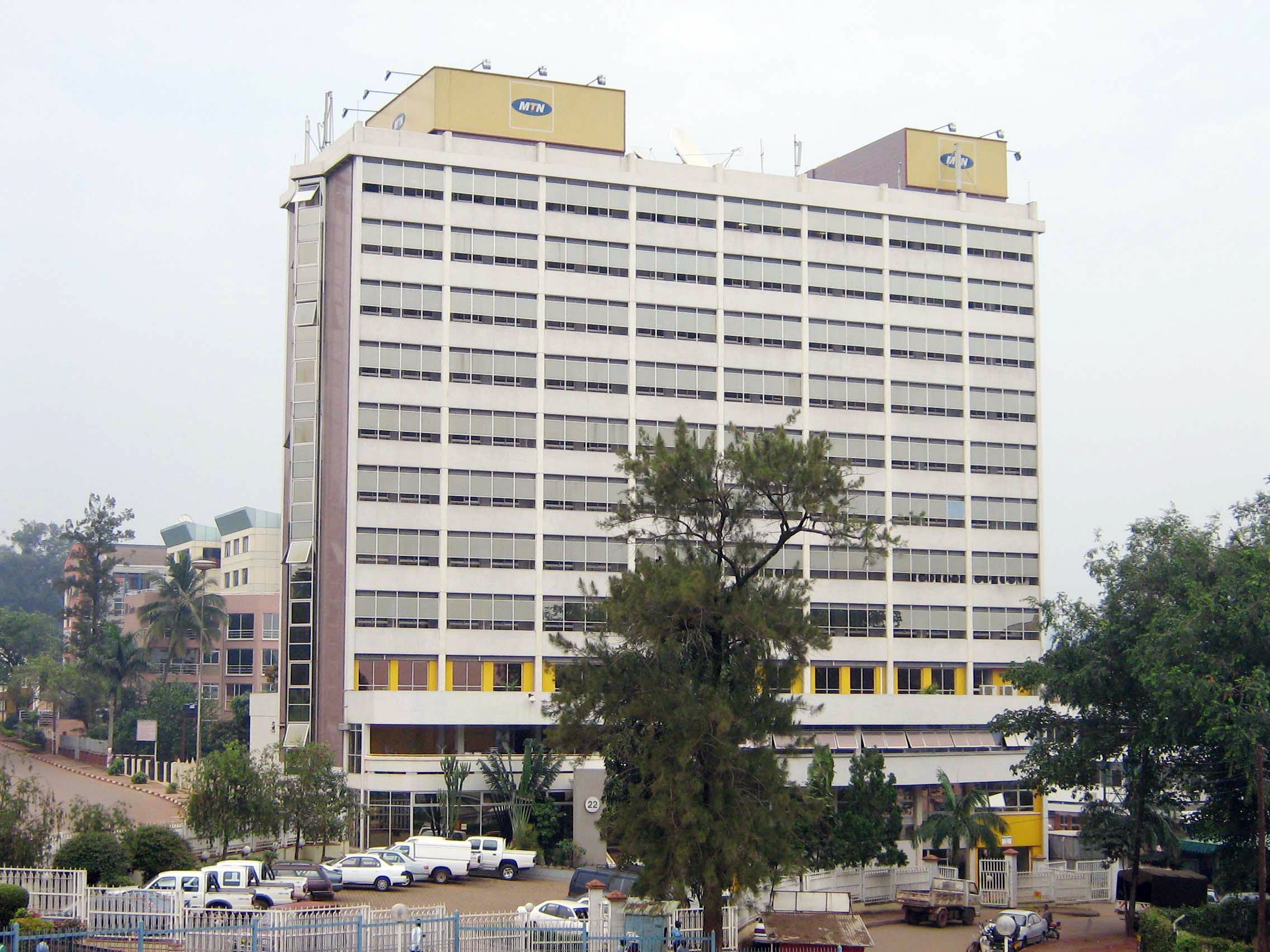Prime
Bakery business emerges from credit crisis

A worker mixes dough at a bakery Photos by Rachel Mabala.
What you need to know:
Quality first. Much as most businesses have expansion plans on top of their agenda, Masembe tells Prosper Magazine that maintaining quality is his primary objective.
LONDON. While others perceived it to be challenging, he was determined to turn it into an opportunity. When Tony Zokora, a half Italian who formerly owned Born and Bread Bakery put his London based business up for sale early last year due to financial constraints, Mr Christopher Masembe decided to take a chance and go for it.
Masembe, a Ugandan living in the United Kingdom who had moved to the British capital in search of greener pastures in 2008, was at the time an artisan baker at the Born and Bread Bakery.
Much as he had hoped to get an accounting job which he had studied for, Masembe says jobs in that area were not easy to come by.
The optimistic man who went to the UK in search of a better life has since turned into an employer of at least 10 people, although he does not disclose how much he paid for the bakery whose name he has since changed from Born and Bread to Lavain Bakery.
“Tony employed me in 2009 but a few years down the road, it became tough for him to run a profitable bakery due to the financial crisis and recession. When he put up the bakery for sale, I decided to take it up using the few savings my wife and I had,” narrates Masembe.
Having learnt the art of bakery, Masembe decided to maintain Zokora’s style of baking, making bread using organic flour and baking in a wood-fired oven.
The bread is made with clean and natural ingredients and baked in a traditional way, by hand and cooked in a wood-fired oven.
A visit to the small bakery in Rich Industrial Estate proves what Masembe was talking about. Employees can be seen busy going about their baking work in a room piled with bags of raw materials and a wood-fired oven in one corner.
Zokora used to produce 17 bread types mainly French-style organic sourdough breads including pain de meteil (50 per cent rye, 50 per cent white), belle pavot (a poppyseed flute) and the fougasse (a French calzone-style loaf containing bacon, whole wheat, walnut and raisin rolls among others, bread types that Masembe has also maintained.
The bread goes for between £ 1.86 and £3 depending on the weight.
The financial challenges that affected businesses across Europe did not deter Masembe from taking the risk, given his accounting background.
“I sat down prior to buying the bakery, did the calculations and what I needed was to do cost reduction in some areas and invest that money somewhere else and the business would run,” he says.
Today, Masembe has been able to revive the bakery just in about a year, producing about 60,000 pieces of 500 grams of bread monthly.
Masembe says finding market for his products was not a problem since Born and Bread Bakery had already established a market, supplying various supermarkets around the city.
He supplies the bread in supermarkets around London such as the Farmers’ Market.
“I rode a little on the ‘Born and Bread Bakery wave’ and I am optimistic about the future,” he boasts.
The bakery has an annual turnover of £ 0.5 million (about Shs1.96 billion) and employs 10 workers.
“I rode a little on the ‘Born and Bread Bakery wave’ and I am optimistic about the future,” he boasts.
He says he has been able to survive in a market with stiff competition because he has maintained the quality of bread.
“We have maintained the traditional way of making bread, using hands and wood-fired oven. We do not use machines and this helps us to maintain a certain level of quality. And if you produce quality bread, you are certain of the market,” explains Masembe. Levain Bakery is also currently sampling out a new bread type, whose market for the moment is predominately black and is sold in churches.
“This is a new product but we have not yet come up with a name, but we want to come up with a name which will integrate the whole of East Africa because in the churches where we sell it, there are Ugandans, Kenyans, Tanzanians and Congolese,” says Masembe.
He says he uses locally produced ingredients, sourced from the UK, although he plans to start producing another type of bread using millet flour which he will be sourcing from Uganda.
Although most businesses have expansion plans on top of their agenda, Masembe tells Prosper Magazine that the expansion mentality doesn’t exist in his plans, saying he is interested in maintaining quality.
“I have seen several bakeries which started small, producing quality bread but when they went big a few years down the road, they lost the quality bit of it. So we intend to maintain a certain number of customers putting into consideration that we give them quality bread,” he says.
He, however, says the business environment in the UK is challenging; “The tax system is a complex one and if one doesn’t have a background of doing business in London, getting a lease could also be another huddle.”
Ms Margaret Hodge, chair of the Public Accounts Committee, UK, said last month that the tax system was “too complex” and should be simplified.
To survive as a business in the UK, Masembe says enterprises should streamline their operations and avoid doggy elements.
He adds that financial management is also key in a country like the UK, one must stay focused.
“I, live a very simple lifestyle. Living an expensive lifestyle is the road to hell. You take so many hours earning a pound but it takes just a few minutes to spend,” he says.
Masembe, however, says self-employment is the sweetest thing that can ever happen to anyone.
“When you are self-employed, you have a sense of freedom but when you are employed by another person, you are always restricted in the way you do things,” he says.




